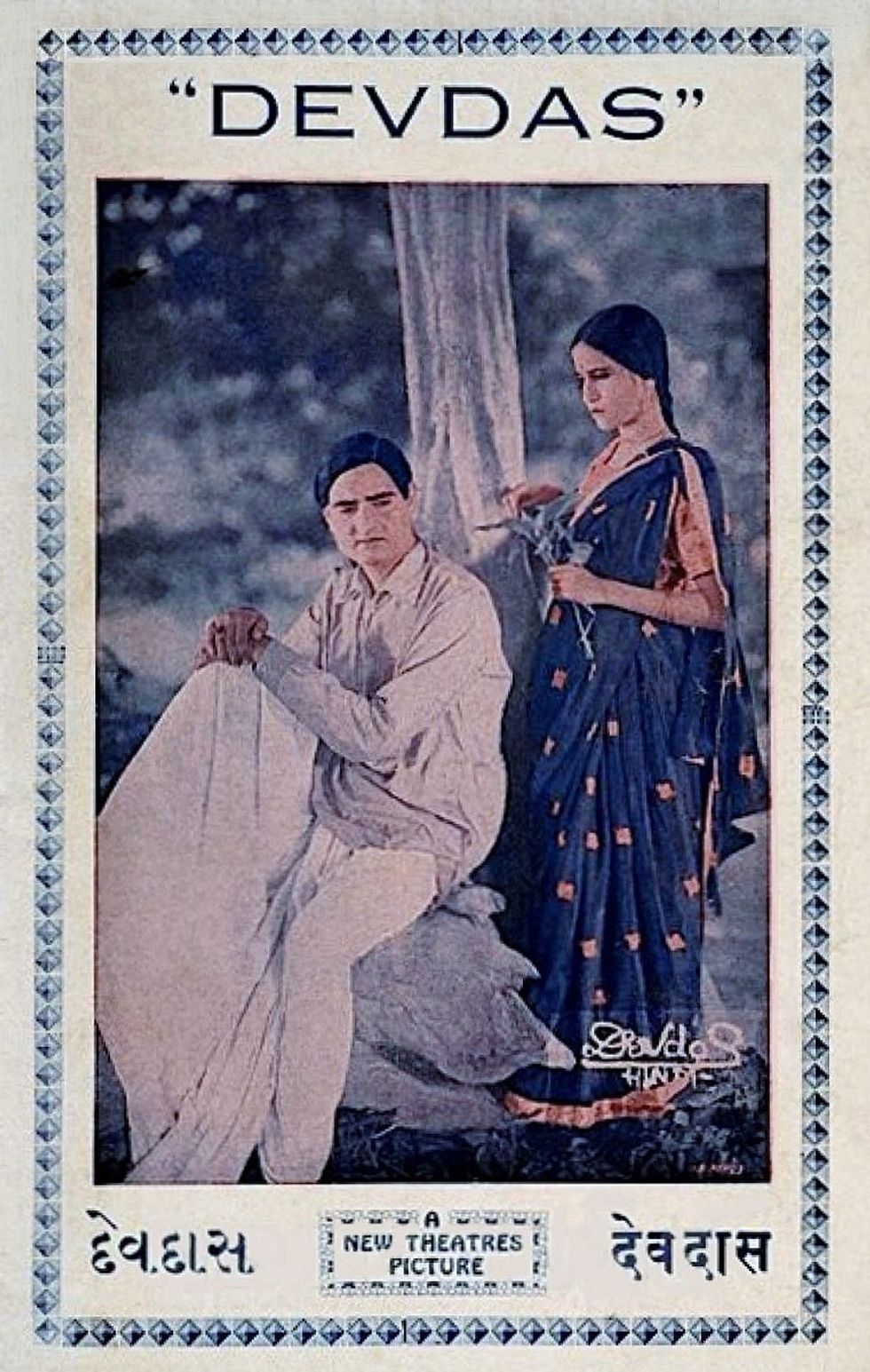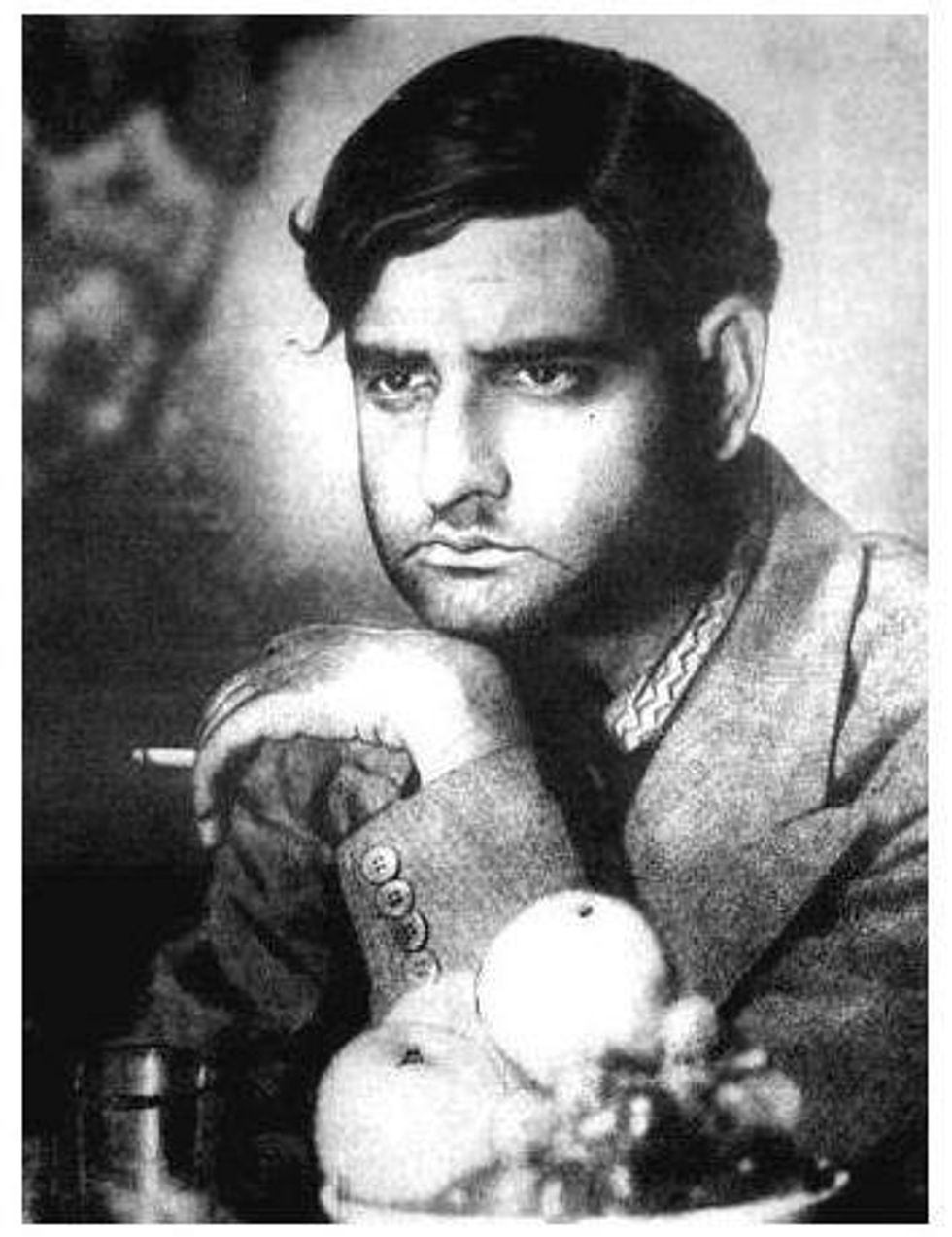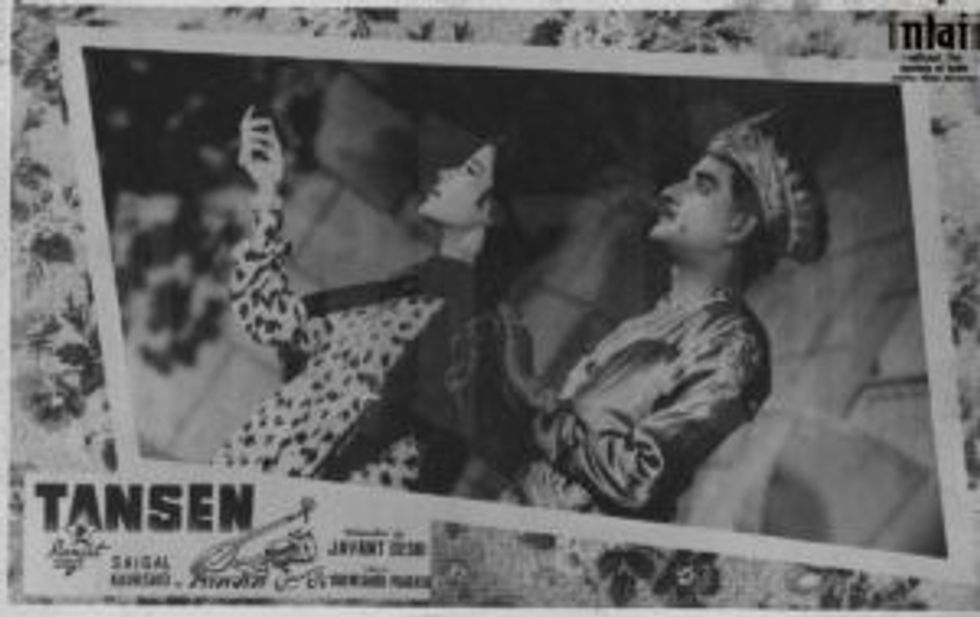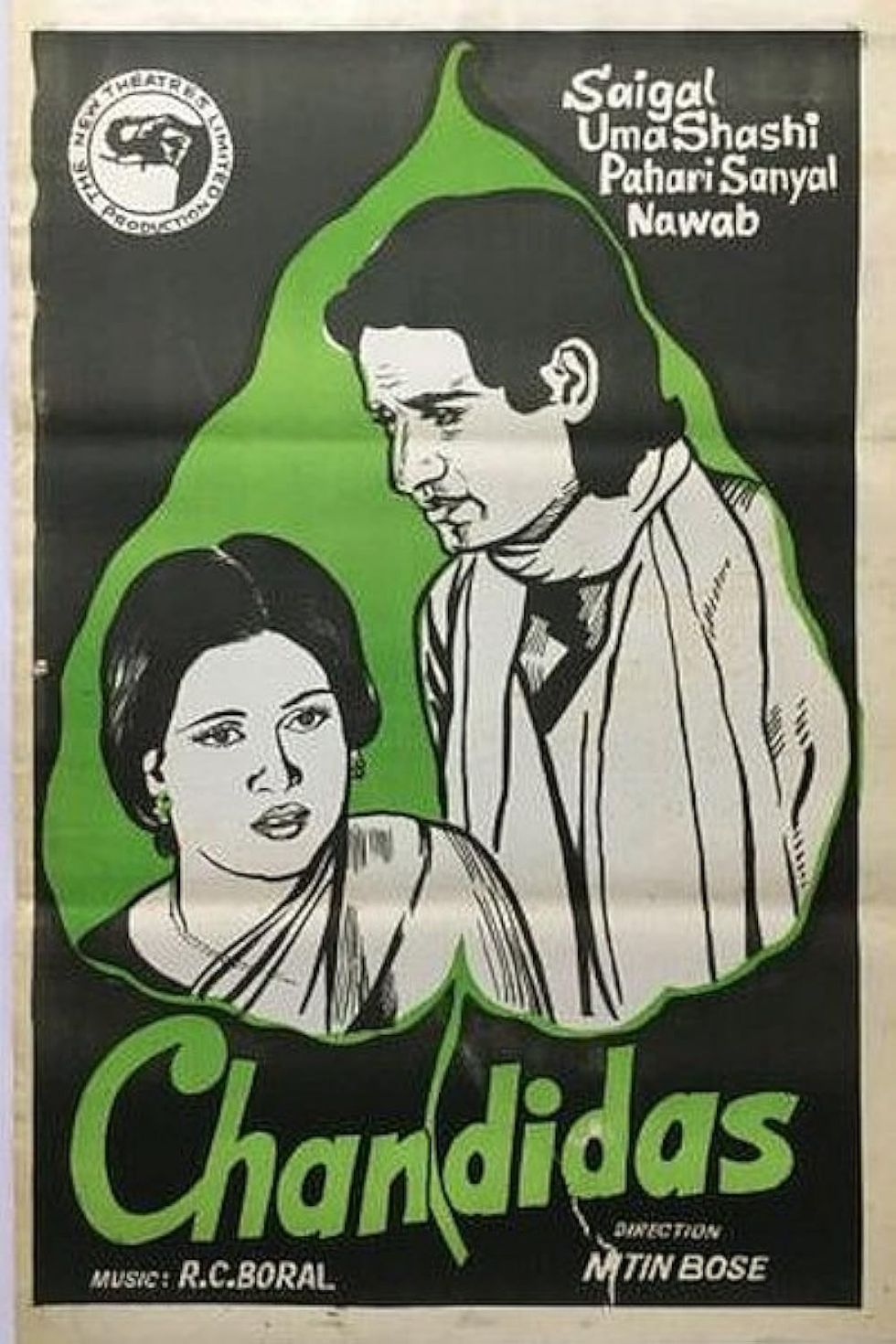KL SAIGAL was arguably the most influential singer in Hindi cinema history.
The first singing superstar of India helped define Bollywood music and inspired all those who followed in his giant footsteps, including music icons like Lata Mangeshkar, Kishore Kumar, Mohammed Rafi and Mukesh.
Born on April 11, 1904, Saigal transitioned from being a railway timekeeper to achieving immense popularity as an actor and singer before his untimely death on January 18, 1947, at the age of 42.
Eastern Eye decided to honour the icon’s death anniversary by narrating the tale of his extraordinary stardom, profound influence and a tragic ending that mirrored his most famous film.
Saigal was born into a Punjabi family in Jammu, with a father serving as a land revenue officer and a devoutly religious mother with a passion for music. As the fourth of five siblings, his early exposure to classical Indian music came from accompanying his mother to religious gatherings where spiritual bhajans, kirtans and shabads were performed.
These outings stood out in an otherwise unremarkable childhood, marking his initial connection to music. Despite objections from his father, Saigal’s ability to mimic songs he heard was encouraged by his supportive mother, sparking his interest in singing.
After dropping out of school early, Saigal found work as a railway timekeeper and later as a typewriter salesman, which allowed him to travel extensively across India. His journey led him to Lahore, a creative hub, where he frequented poetry recitals and received encouragement from his friend Mehrchand Jain to pursue his passion for singing.
In 1930, while in Calcutta, he encountered film producer BN Sircar. Saigal recounted in a rare interview that he was nudged into a singing career, stating, “As a representative for the Remington Typewriter Company, I came to Calcutta.
That’s when I had a meeting with BN Sircar. At that time, he was contemplating starting a film company. They had already placed orders for machinery, but the studio was not ready yet.”
Saigal’s singing talent was accidentally discovered one day during a discussion with a group that included an actor, producer and musician. He was signed on by the newly formed Calcutta-based studio, New Theatres, on a contract of `200 a month. He had said in the interview:
“Maybe they sensed something about my nature, so they extended the offer after a thorough discussion.
“However, at that time, I wasn’t willing to join their company as an actor. Later, they explained things to me in great detail and spoke about the excellent prospects. That’s when I agreed. But during the initial days, I had to face quite a few hardships because my parents were absolutely against me working in films.

Nonetheless, I persevered and eventually entered this field.”
A few of his songs were released by the Indian Gramophone Company, but his foray into Bollywood as an actor and singer was in 1932, under the name Saigal Kashmiri, with the release of three movies, Mohabbat Ke Ansu, Subah Ka Sitara and Zinda Lash. But all three of them failed, and the following year, he used his own name KL Saigal for the film Yahudi Ki Ladki, which flopped as well.

The big turning point came later in 1933 with the devotional movie, Puran Bhagat. A young musician named RC Boral, who would later become an alltime great and receive Indian cinema’s highest honour, the Dadasaheb Phalke Award in 1978, composed the songs. He introduced techniques into song recordings that combined classical music with traditional folk tunes. The result was a game-changing soundtrack that featured bhajans sung by Saigal, which became a sensation across India and turned him into a star.
The newcomer would become a big box office draw, largely due to his magnificent singing in films such as the 1934 social drama Chandidas. He would gain many fans, including a very young Lata Mangeshkar. One of the greatest singer’s of all time, Mangeshkar had said of him:
“I know there are many singers who idolise me. But there was only one singer I idolised and that’s KL Saigal saab. I have been crazy about his voice since childhood. I had even declared during my childhood that if I married anyone it would be Saigal. There was a pathos and magnetism in his voice which I didn’t find in anyone else.”
The actor-singer soared to superstardom the following year with his careerdefining role in Devdas (1935), which was based on the famous Sarat Chandra Chattopadhyay novel. The runaway success established him as India’s biggest star. Mangeshkar had also said: “He was not only my all-time favourite singer, he was also one of the few human beings who inspired me. I never met him. I only saw him in films. I watched his film Devdas innumerable times. I idolised him from childhood. After my father, Saigal saab was my greatest influence.”
The only downside to playing a lovelorn alcoholic in Devdas was a deadly drinking habit he developed. His subsequent musicals in Hindi and Bengali would become huge successes. Some of his most entertaining films included Pujarin (1936), President (1937), Dharti Mata (1938), Street Singer (1938) and Dushman (1939).
Even though playback singing had been introduced, he would still render some songs live in front of the camera.
Saigal once said: “I have no clear understanding of the grammar of music. I manage to sing because of a strong feeling about how certain sounds should be rendered in a given raga. I do not use 10 notes if I can manage to do the same with one. That’s because I know very little.”
He became a major movie star and the most popular singer in the country.
Many aspiring singers, who would go onto become future legends like Kishore Kumar, Mohammed Rafi, Lata Mangeshkar and Mukesh, were inspired by him. Before finding his own voice, Mukesh had delivered the song Dil Jalta Hai, which sounded so similar to his idol that Saigal had said: “That’s strange, I don’t recall singing that song.”
Superstar singer Saigal continued to entertain audiences and moved to Bombay in 1941 to work for the major studio, Ranjit Movietone. By now, the heavy drinking had begun taking a toll on him.
It came to a point where he could only record songs while intoxicated. But bad health due to alcoholism meant that the number of songs and films that came his way diminished, despite his popularity.
He still delivered hits like Bhakta Surdas (1942), Tansen (1943), Tadbir (1945) and Shahjehan (1946). Alchoholism finally did him in like his most famous character Devdas, with the end coming at a young age, on January 18, 1947. His last movie, Parwana (1947), was released the same year and became a success.
Thus ended a remarkable 15-year career that included nearly 200 songs and 36 feature films. His enduring legacy continues through the inspiration he instilled in numerous musicians and singers, shaping subsequent generations, even influencing today’s contemporary artists. In many ways, KL Saigal remains the foundation of Bollywood music.


















 Naeli and the secret song
Naeli and the secret song
 Jamie Lloyd’s Evita with Rachel Zegler set for Broadway after London triumphInstagram/
Jamie Lloyd’s Evita with Rachel Zegler set for Broadway after London triumphInstagram/
 A compelling premise, layered and unpredictable charactersAMG
A compelling premise, layered and unpredictable charactersAMG Anyone who enjoys a gripping story with a diverse cast and unexpected twistsHarperFiction
Anyone who enjoys a gripping story with a diverse cast and unexpected twistsHarperFiction
 The Story Teller by Ley Roberts
The Story Teller by Ley Roberts Summer Exhibition coordinator Farshid Moussavi, with Royal Academy director of exhibitions Andrea Tarsia in the background
Summer Exhibition coordinator Farshid Moussavi, with Royal Academy director of exhibitions Andrea Tarsia in the background An installation by Ryan Gander
An installation by Ryan Gander A sectional model of DY Patil University Centre of Excellence, Mumbai, by Spencer de Grey
A sectional model of DY Patil University Centre of Excellence, Mumbai, by Spencer de Grey Rituals and Identity and Theatre of Resistance by Arinjoy Sen
Rituals and Identity and Theatre of Resistance by Arinjoy Sen